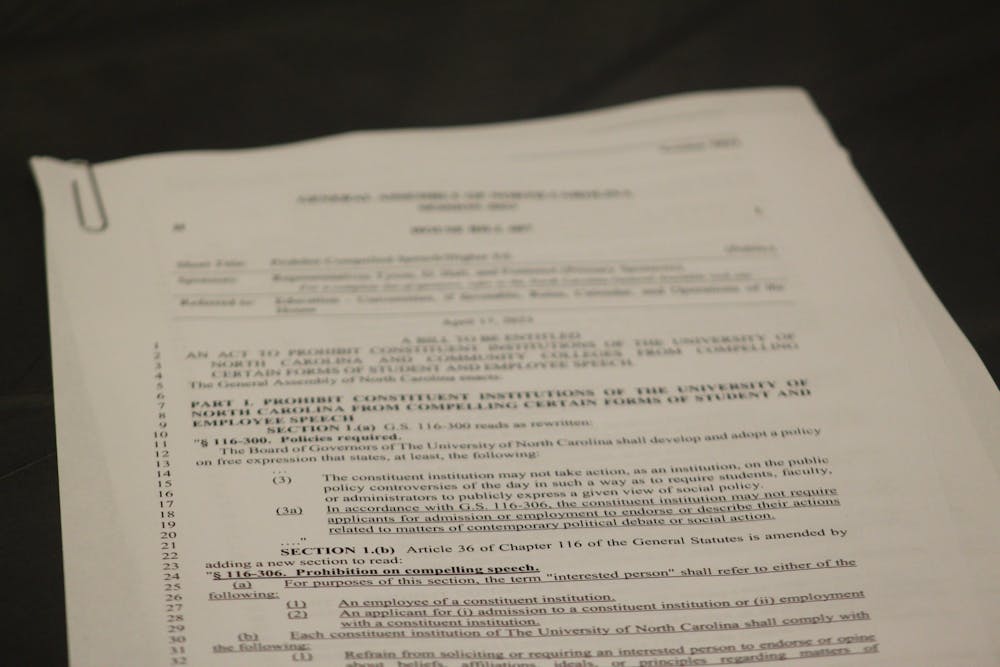Last month, a bill to prohibit compelled speech in higher education passed the N.C. House of Representatives and moved to the N.C. Senate.
House Bill 607 prohibits UNC System schools and community colleges from compelling students, faculty and administrators to express a given view of social policy during their consideration for admission, employment or professional advancement.
Perspectives vary about whether this bill protects or endangers free speech.
“I find it oxymoronic in the sense that, essentially, what they're doing is compelling people not to speak,” Sue Estroff, UNC professor of social medicine, said.
According to Rep. Jon Hardister (R-Guilford), a chairman of the House Standing Committee for Universities, the purpose of this bill is to protect free speech and maintain institutional neutrality.
“Universities need to be a place where students can speak freely and debate these ideas as a student body," he said. "Faculty and staff have freedom of speech as well, but the institution itself should be neutral."
Since the UNC Board of Governors passed a provision to prohibit compelled speech on Feb. 23, Rep. Ken Fontenot (R-Nash, Wilson), a sponsor of the bill, said that it would not greatly affect UNC System schools.
“For instance, this bill actually really will not have that much of an impact on UNC because it's already been adopted by the Board of Governors," he said. "As a matter of fact, we got the language from them."
Instead, Fontenot said the bill will impact how diversity, equity and inclusion efforts are implemented in community colleges in the state.




